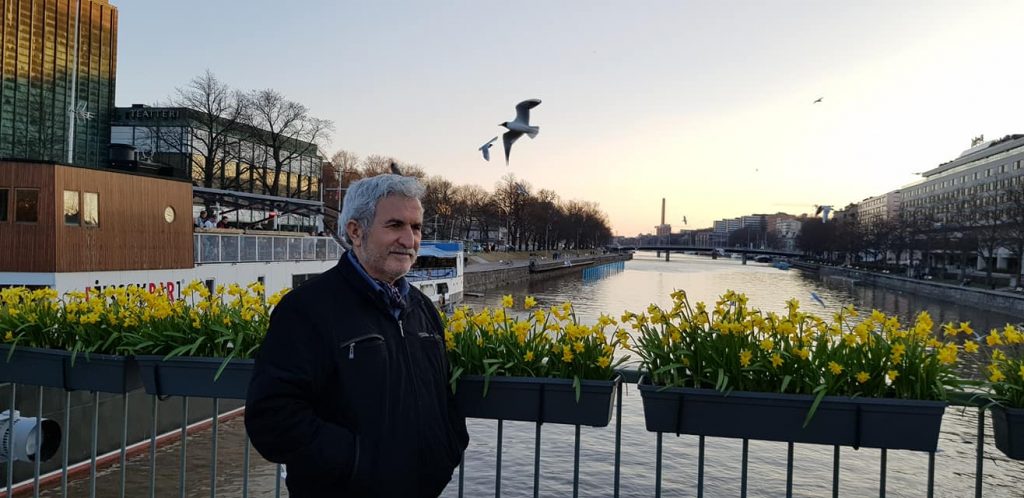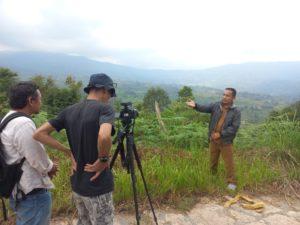PAS: In retrospection, has how the industrial revolution been managed a curse or a blessing visa-vis climate change and global warming?
İÖ: This is a very important question. As you know many terms, even the terms, “ecology” and “environment”, “sustainability” are new inventions. Therefore, it is an irony of history that during the second half of the nineteenth century and the first half of the twentieth, the predominant view held by the positivists and scientifically-minded philosophers was that science and technology could satisfy humanity and solve its problems totally, without creating new problems. (Özdemir, 2008)
Further, such people tried to convince us that not only religions but also all metaphysical propositions and speculations were meaningless, and therefore should be eliminated from the concerns of the modern man. As a result of this view, modern man lost his awareness of the sacred dimension of nature and alienated himself from it.
The Cartesian perception and metaphor of nature is a machine, that it has no value and expresses no sense of purpose was criticized by all environmentalist as this view robs nature of all its inherent qualities.
John Locke’s theory of primary and secondary qualities also should be remembered in this context. Locke argues that only primary qualities exist in nature; there is no place for secondary qualities. Rather, the latter are products of the human mind which are imposed on nature, which in itself is devoid of soul and intelligence and has no inherent or intrinsic values at all. (Whitehead 1926). In short, “nature is a dull affair, soundless, scentless, colourless: merely the hurrying of material, endlessly, meaninglessly.” A tree, for example, has no intrinsic value of its own being as such. According to the modern materialistic concept of nature, a tree gains its value through human intervention, such as when it becomes a chair, a table or whatever. (Özdemir, 2008) The only value that nature can have is instrumental value. Such an understanding of nature has provided justification for the exploitative use of nature and natural resources.
Therefore, the instrumental view of nature which characterizes modern thought has been very severely criticized by environmentalists in recent decades. Environmentalists claim that there is a strong and direct relationship between environmental problems and our modern understanding of nature. (ibid) To put it more concretely, the value systems that we hold and which, in turn, shape and mould our behaviour and attitudes towards society and nature, are the result of our overall beliefs and metaphysical views concerning all reality. Consequently, any alternative theories of environmental ethics can be expected to challenge the basic propositions of the dominant modern understanding of nature.
PAS: Do you think the Paris Accord is workable and can it help humanity stave off climate catastrophe?
İÖ: Yes, I do, but it is dependent on our readiness to make sacrifices for future generations. But as the late Arnold Toynbee once said if we could not overcome our selfish and hedonistic lives who will care for future generations. Then, he underlined the importance of religious consciousness to respond to these challenges as religions teach a spirit of altruism, care, and sharing. Toynbee argued that religion can be a key to achieving the purposes of life and solve some major challenges. For him man’s greatest need is for “a spiritual improvement in ourselves and in our relations with our fellow human beings.” The great religions (what Toynbee calls the “higher religions” -Judaism, Zoroastrianism, Buddhism, Hinduism, Islam, and Christianity) teach that self-centeredness and egocentricity “can be conquered by love.” (Kennedy, 1957; Sempa, 2018).
CONCLUSION:
PAS: I would like to thank you, on behalf of JAMMO’s management and readers, for the openness with which you have answered all the questions put to you and for the thoroughness and sincerity that you have brought to bear on the issues of our deliberation. I hope we will continue to Interview part 2 later to contemplate other issues such as the Garden of Eden narratives; the fall of Eve and Adam amongst other fascinating subjects which include sexism, patriarchy and the concepts of paradise and hell, judgement, and end times; all which may extend our understanding of both the human responsibility and the divine providence in relation to the ecologic balance on Earth.
Whereas it might have seemed to many that religions are habitually in contemplation of morality and ethics endlessly for their own sakes, it is my view that Professor Özdemir has successfully demonstrated in this interview that this is not the case. That FAITHS matter when they cooperate to reduce global warming, deforestation, and the damage to the ozone layers. That all faiths and no faith can work to counter-balance our current destructive economics of production. We must retrace our footsteps and digital footprints. We must achieve equilibrium in our eco systems as a matter of transformative urgency.
Source: JAMMO







